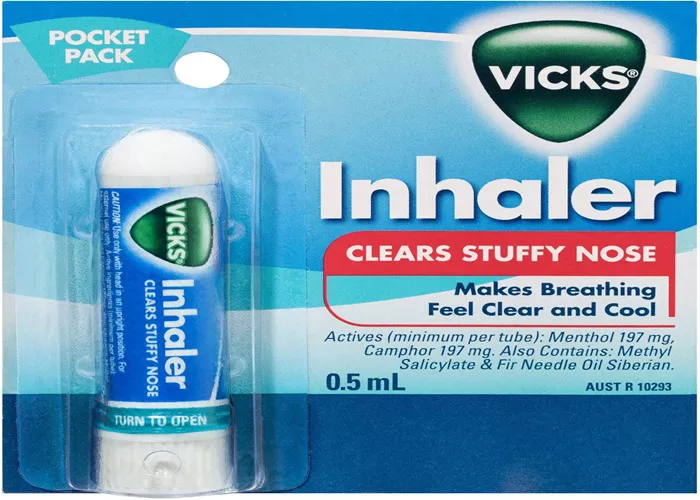A runny nose, medically known as rhinorrhea, is a common symptom that can be caused by various factors such as the common cold, flu, allergies, or exposure to irritants. While a runny nose is often a sign that your immune system is working, it can be quite uncomfortable and disruptive. Fortunately, there are several over-the-counter (OTC) medications available that can help manage this symptom effectively.
Understanding a Runny Nose
A runny nose occurs when the nasal passages produce excessive mucus, which can drip out of the nose or down the back of the throat. This condition is often accompanied by other symptoms such as sneezing, nasal congestion, and itchy eyes. Common causes include:
- Viral Infections:Such as the common cold or flu.
- Allergies:Including seasonal allergies and hay fever.
- Environmental Irritants:Such as dust, pollen, or smoke.
- Changes in Temperature:Particularly in cold weather.
9 Types of OTC Medications for a Runny Nose
Saline Nasal Sprays
Saline nasal sprays are a simple and effective way to manage a runny nose. They work by rinsing away irritants and thinning mucus, making it easier to clear the nasal passages.
Form:Nasal spray or drops
Effectiveness:Helps to cleanse the nasal passages and reduce mucus production.
Safety:Generally safe for both adults and children.
Best For:People with mild symptoms or those who prefer a non-medicated option.
Decongestant Nasal Sprays
Decongestant nasal sprays provide rapid relief by reducing swelling in the nasal passages. However, they should not be used for more than three days to avoid rebound congestion.
Oxymetazoline (Afrin)
Form:Nasal spray
Effectiveness:Provides quick relief from nasal congestion and a runny nose.
Safety:Should not be used for more than 2-3 days to avoid rebound congestion.
Best For:Short-term relief from severe nasal congestion.
Phenylephrine
Form:Nasal spray
Effectiveness:Effective in reducing nasal congestion and a runny nose.
Safety:Should not be used for more than 2-3 days to avoid rebound congestion.
Best For:Short-term relief from severe nasal congestion.
Antihistamines
Antihistamines work by blocking histamine, a chemical released during an allergic reaction. They can help reduce symptoms such as a runny nose, sneezing, and itchy eyes.
Diphenhydramine (Benadryl)
Form:Tablet, liquid
Effectiveness:Effective in managing allergy-related symptoms.
Safety:May cause drowsiness.
Best For:People needing quick relief from allergy symptoms.
Loratadine (Claritin)
Form:Tablet, chewable tablet
Effectiveness:Effective in managing allergy-related symptoms.
Safety:Generally non-drowsy.
Best For:People with allergies causing a runny nose.
Cetirizine (Zyrtec)
Form:Tablet, liquid
Effectiveness:Effective in managing allergy-related symptoms.
Safety:May cause mild drowsiness.
Best For:People with moderate to severe allergy symptoms.
Combination Medications
Combination medications provide comprehensive relief by combining the effects of antihistamines and decongestants.
Claritin-D (Loratadine + Pseudoephedrine)
Form:Tablet
Effectiveness:Provides relief from both nasal and non-nasal symptoms.
Safety:May cause drowsiness and other side effects associated with decongestants.
Best For:People with severe symptoms needing comprehensive relief.
Zyrtec-D (Cetirizine + Pseudoephedrine)
Form:Tablet
Effectiveness:Provides relief from both nasal and non-nasal symptoms.
Safety:May cause drowsiness and other side effects associated with decongestants.
Best For:People with severe symptoms needing comprehensive relief.
Expectorants
Expectorants help thin mucus and make it easier to expel, which can reduce nasal congestion and a runny nose.
Guaifenesin (Mucinex)
Form:Tablet, liquid
Effectiveness:Helps to thin mucus and reduce congestion.
Safety:Generally safe but may cause mild side effects such as headache or nausea.
Best For:People with a runny nose and chest congestion.
Conclusion
Managing a runny nose effectively requires the right choice of medication based on your specific symptoms and needs. Saline nasal sprays provide a gentle and effective solution for rinsing away irritants and thinning mucus. Decongestant nasal sprays offer rapid relief but should be used short-term to avoid rebound congestion. Antihistamines like diphenhydramine, loratadine, and cetirizine are effective for managing allergy-related symptoms. Combination medications provide comprehensive relief for severe symptoms. Always consult with a healthcare provider to determine the best treatment plan for your specific needs. With the right approach, you can manage your runny nose and improve your overall comfort.
Relative topics:
What’s the 9 Best for Sneezing and Runny Nose?
What’s the 10 Best Allergy Medicine for Adults with Pet Allergies
What’s the 8 Strongest Allergy Eye Drops

